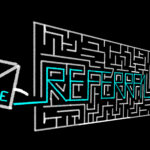Look closely at the law on named referrals and how hospitals are paid, and the case is hard to make.
It is commonly believed that bulk-billing to Medicare for public hospital outpatient services leads to double dipping.
However, on close inspection of the facts and law, there does not appear to be any payment duplication at the relevant point in time, or if there is, it is unlikely to involve the Medicare billing.
Consider this common scenario: Alice arrives at the public hospital outpatient department for her appointment with the gastroenterologist. She has a named referral and has consented to be treated as a private patient. Dr A is a salaried gastroenterologist exercising a right of private practice (ROPP). Dr A sees Alice and plans her treatment. Before leaving, Alice signs a bulk-bill voucher for the service provided. The bulk-billed claim is transmitted to Medicare that day, and payment follows into a hospital bank account overnight.
What law has been breached and where is the double dip?
First, the law
Much of the confusion around the legality of public hospitals bulk-billing in outpatient departments can be traced back to the 1994 High Court case of Health Insurance Commission v Peverill.
Prior to Peverill, we didn’t really have a strong handle on the legal nature of the Medicare rebate and who had contracts with whom in the context of a standard bulk-billing transaction involving three parties – a patient, a doctor, and the government – but Peverill set us straight.
The High Court confirmed that the legal relationship between a doctor and a patient was a private contract governed by general principles of contract law. This meant that when a doctor provided a service to a public outpatient who had elected to be treated privately, that service was not provided “by or on behalf of, or under an arrangement with the Commonwealth” in breach of the oft cited section 19(2) of the Health Insurance Act 1973, but pursuant to a private contract between the doctor and patient. It was basically no different to visiting a GP, largely because the patients weren’t inpatients.
Dr Carmen Lawrence, who was the federal health minister in 1994, unsuccessfully sought to stop the states cost shifting in this manner, because the legal advice was clear, and the practice continues today pursuant to provisions of the most recent iteration of the National Health Reform Agreement.
Even beyond the contentious public hospital outpatient setting, it is often forgotten that patients of public hospitals can also elect to be treated privately as inpatients. When they do, an assigned Medicare benefit is passed to either a doctor or the hospital as part of a bundled payment, usually under private gapcover arrangements. It is therefore not open to suggest that a patient can only avail their Medicare benefit when they elect to be a private inpatient but not when they elect to be a private outpatient. It is their Medicare benefit.
So, if they elect to be private – whether in or out – then provided all relevant requirements are met, a Medicare rebate is able to be assigned pursuant to a private contract between the patient and their doctor.
Returning now to Alice’s outpatient appointment – provided Alice has consented to be bulk-billed, has a named referral, and Dr A is legitimately exercising a ROPP, there does not appear to be any illegality about Alice being bulk-billed. But is it double dipping? Well, that would depend on whether the commonwealth has already paid the public hospital for the service provided to Alice.
When do public hospitals receive their annual budget allocations?
Each year a legal instrument known as the Federal Financial Relations (National Health Reform Payments) Determination appears on the federal register of legislation. The explanatory statement to this instrument says the following:
“Advance payments in respect of national health reform are made throughout the financial year based on estimates of each jurisdiction’s anticipated entitlement for that year.”
Essentially, the way it works is that the federal government makes distributions to the states, based on activity reported in the previous year, with an allowance for anticipated growth. State health departments then pass relevant budget allocations to public hospitals within their jurisdiction, based on each hospital’s reported activity from the previous year.
It’s basically a payment in arrears model, so the commonwealth cannot have paid for the service provided to Alice at the moment in time when Dr A bulk-billed her, because that activity will only be reported after Alice’s appointment. There can therefore be no payment duplication because the hospital will not receive payment for that activity until the following year, when it is included in the hospital’s next budget allocation.
The only time when Medicare bulk-billing might constitute double dipping is if Alice’s bulk-billed claim is rejected and the hospital does not get around to resubmitting it to Medicare for over a year, by which time the hospital has already received payment for the service Dr A provided to Alice. This would be an exception rather than the rule.
It is also important to understand that doctors are not signatories to the NHRA: the federal, state and territory governments are. Doctors therefore cannot personally breach the NHRA due to a legal principal known as privity of contract, which provides that a person who is not a party to a contract can neither enforce the contract nor incur any obligation under it.
Only the parties to the NHRA can be held in breach of it, which begs the question – why is the Department of Health coming after doctors, when it appears that it is the state and territory governments who may be the guilty double dippers? If a public hospital submits a duplicate activity claim to the commonwealth for the service Dr A provided to Alice, after it was bulk-billed, isn’t the duplication a breach by the hospital, rather than doctor A? And if the answer to that question is yes, then it is the National Weighted Activity Unit or NWAU that needs to be refunded, not the Medicare benefit.
It is only a matter of time before this tangled train wreck of incoherent legal instruments ends up in front of a court, and for all our sakes, that day can’t come soon enough.




